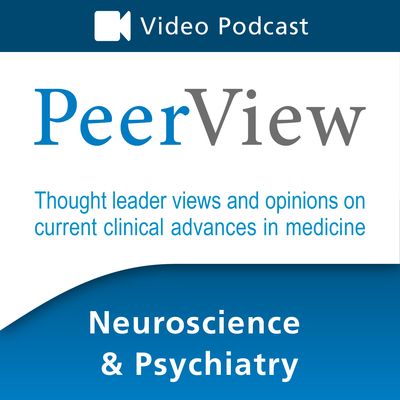PeerView (PVI) is a leading provider of high-quality, innovative continuing education (CME/CE/CPE and MOC) for clinicians and their interprofessional teams. Combining evidence-based medicine and instructional expertise, PeerView activities improve the knowledge, skills, and strategies that support clinical performance and patient outcomes. PeerView makes its educational programming and expert-led presentations and symposia available through its network of popular podcast channels to support specific specialties and conditions. Each episode includes a link to request CME/CE credit for participation. PeerView is solely responsible for the selection of topics, the preparation of editorial content, and the distribution of all materials it publishes.
http://ww2.peerview.com
James F. Howard Jr., MD - A Targeted Approach to Management of Generalized Myasthenia Gravis: The Latest on Novel Therapies That Improve Patient Outcomes
Go online to PeerView.com/VZG860 to view the activity, download slides and practice aids, and complete the post-test to earn credit. Generalized myasthenia gravis (gMG) is a rare, chronic autoimmune disorder that is highly variable in clinical presentation and treatment response. Traditionally used treatments for gMG are broadly immunosuppressive, do not target pathogenic immunoglobulin G (IgG) autoantibodies, and provide insufficient symptom relief with significant side effects. Fortunately, advances in the understanding of gMG pathogenesis are leading to the development of new treatment options, including neonatal Fc receptor (FcRn) modulators such as the recently approved efgartigimod, and rozanolixizumab, which recently completed phase 3 trials. As with all new and emerging therapeutics, it is important for clinicians to remain abreast of the latest data. At a recent live event, a multidisciplinary panel of experts compared the safety, efficacy, and tolerability of new treatment options with traditional therapies for gMG. Audience members received expert advice from the perspective of a neurologist, pharmacist, and infusion nurse, with the goal of providing their patients with individualized care through FcRn modulation therapy. Upon completion of this activity, participants should be better able to: Compare safety, efficacy, and tolerability of new treatment options with traditional therapies for generalized myasthenia gravis (gMG); Apply an understanding of the rationale and mechanisms for reducing levels of autoreactive IgG antibodies using FcRn-modulating therapies when making gMG treatment decisions; and Implement a safe administration protocol for the use of FcRn-modulating therapy that includes infusion procedures, premedications, vaccinations, and treatment cycle timing.
